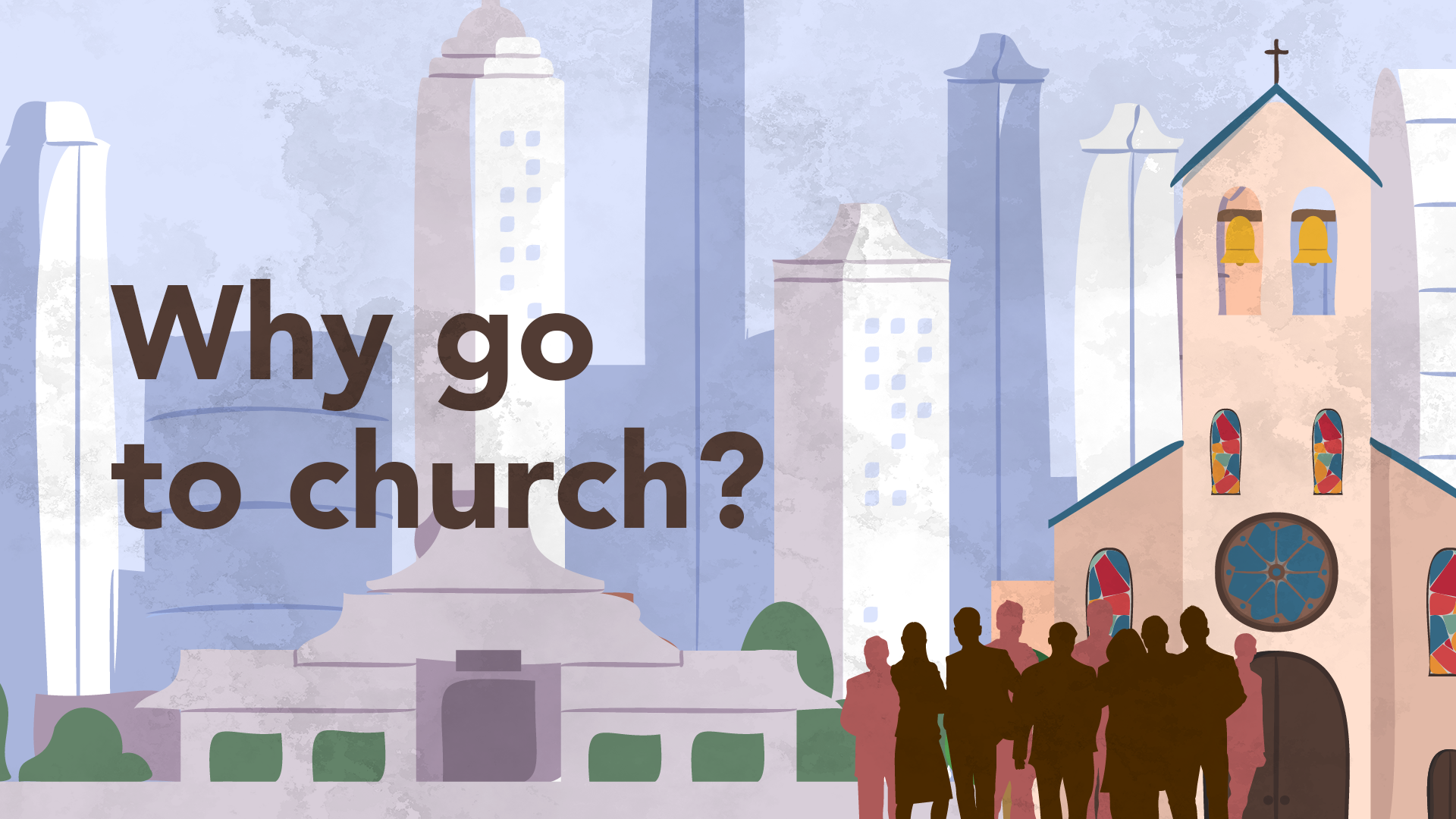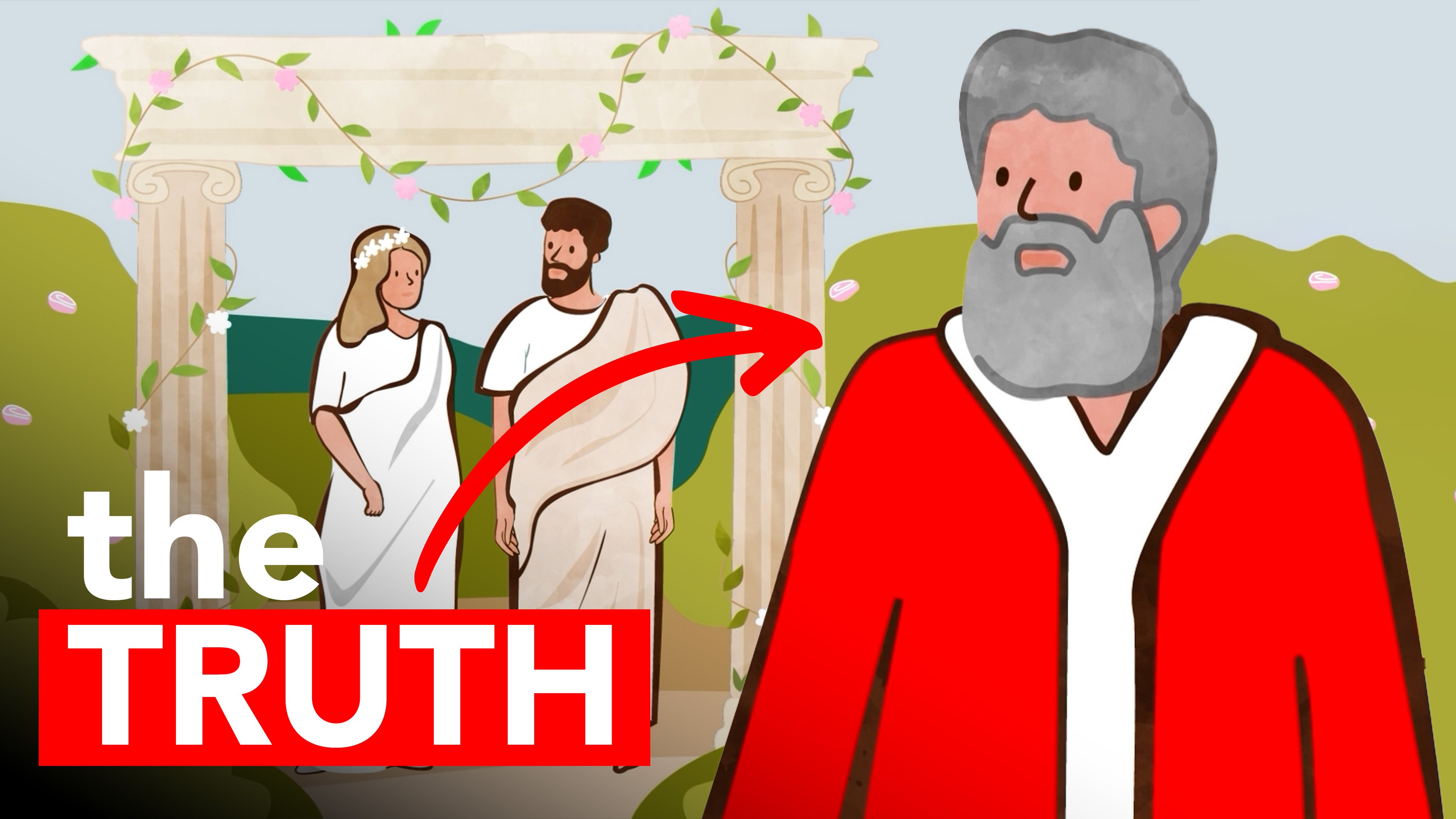You’re in a conversation and someone says, “Christians shouldn’t celebrate Halloween. It’s a pagan holiday that glorifies evil.”
What would you say?
To many people, Halloween is a harmless opportunity to host parties, kick off the holiday spending season, and eat too much candy. For others, it’s an excuse to celebrate darker things, like skeletons, witches, ghosts, and gory costumes. And for some, it’s a way to flirt with evil, even death.
So, what IS Halloween? And should Christians celebrate it?
This video explores three things to consider when celebrating Halloween.
You’re in a conversation and someone says, “Christians shouldn’t celebrate Halloween. It’s a pagan holiday that glorifies evil.”
What would you say?
To many people, Halloween is a harmless opportunity to host parties, kick off the holiday spending season, and eat too much candy. For others, it’s an excuse to celebrate darker things, like skeletons, witches, ghosts, and gory costumes. And for some, it’s a way to flirt with evil, even death.
For Christians, the real question about Halloween is not whether we’re accidentally worshipping the Devil, but whether we are loving God and our neighbors, and proclaiming what is the true about Christ’s victory over evil. So, the next time someone says, “Christians shouldn’t celebrate Halloween. It’s a pagan holiday that glorifies evil,” here are three things to keep in mind:
First, what is often claimed about the history of Halloween is wrong.
Some people claim that Halloween comes from a pagan festival called Samhain (SAH-win), when druids of old would commit human sacrifice under a full moon.[1] But according to historians and even many modern pagans, most of that story is made-up.[2] In fact, no detailed records of Samhain or other Celtic festivals survived,[3] so we know very little about it. And, what modern pagans practice is more of an imaginative reconstruction that has little in common with Halloween historically, other than occurring at harvest time.
A more accurate explanation for the date and name of Halloween and even its emphasis on the dead is the Christian feast All Saints Day which was celebrated on November 1st. This day was also known as “All Hallows,” so the night before (October 31st) came to be known as “All Hallows Eve,” or “Hallow’een.”
At some point, traditions like dressing up and going door to door to collect treats developed. In England, the idea of a night of mischief probably came not from Halloween, but from Guy Fawkes Day on November 5th.
It wasn’t until the late 1700s that Halloween lost its Christian associations and took more of the ghoulish, plastic, teeth-rotting form we know today. It’s not a coincidence that most of the day’s transformation happened in America and, like what we now think of as “Santa Claus,” that it had so much to do with selling merchandise.
As it turns out, all of the witches and jack-o-lanterns and spider webs and skeletons have commercial, not historical origins. Halloween has more to do with department stores than Druids.
Second, the love of God and neighbor should guide all of our celebrations, including Halloween.
Even if Halloween isn’t a revival of an ancient Paganism, that doesn’t mean it’s morally innocent. Many sinful and destructive practices have become associated with Halloween over the years, including sexually provocative costumes, drunkenness, drug abuse, and vandalism. These are as wrong on October 31st as any other night, and Christians are right to avoid them.
There’s also the general ugliness that’s often present on Halloween. Imitations of murder and mutilation are disgusting and rude, and those are not things to decorate with. We age restrict those kinds of images on television, but for some reason it is culturally acceptable to display the same images on front porches.
Halloween is no excuse to engage in destructive and sinful activities. Christians aren’t granted a day off from the Great Commandment to “love the Lord your God with all your heart and with all your soul and with all your mind.”[4] And gross, gory, or excessively scary imagery is not a way to “love your neighbor as yourself.”[5] No matter what we do or how we celebrate, Jesus was clear that these two commandments should govern all of our behavior. Halloween is not a valid excuse to ignore them.
Third, evil is a defeated foe.
In Colossians 2, Paul proclaims that Christ has “disarmed the powers and authorities,” In fact, He “made a public spectacle of them, triumphing over them by the cross.”[6] In His crucifixion and resurrection, Jesus has defeated Satan and His hosts.
There are real forces of spiritual darkness, but according to the Bible, they are in retreat. Their power was permanently broken when Christ rose from the dead. We need no longer fear death because Christ has destroyed “the one who has the power of death, that is, the devil.”[7] His fate is sealed, and life has the last word.
Any message that Christians send, including with our celebrations, should proclaim the victory of Jesus, rather than glorify evil, death, or darkness. Paul offered guidance on the right way to celebrate when he wrote to the Philippians, “…whatever is true, whatever is honorable, whatever is just, whatever is pure, whatever is lovely, whatever is commendable, if there is any excellence, if there is anything worthy of praise, think about these things.”
Christians should always consider what our celebrations say about evil, and the Savior who triumphed over it. This doesn’t necessarily mean it’s wrong to enjoy Halloween, or even perhaps to mock the forces of evil. However, it does mean that the love of God and neighbor should guide our fun, and that we should do everything we can to tell the truth about who has won.
So, the next time someone says “Christians shouldn’t celebrate Halloween. It’s a pagan holiday that glorifies evil,” remember these three things:
Number one: what is often claimed about the history of Halloween is wrong
Number two: the Love of God and neighbor should guide all our celebrations, including Halloween.
Number three: Evil is a defeated foe.
[1] Jack Chick# 58: “Boo”: https://www.chick.com/products/tract?stk=58
[2] “We Don’t Own Halloween,” Jason Mankey, Patheos Paganism, October 23, 2013: https://www.patheos.com/blogs/panmankey/2013/10/we-dont-own-halloween/
[3] “…we have basically no evidence to teach us about Samhain, and the later Christians communities in Ireland, Scotland, and England were pretty good at stamping it out.” Steven Wedgeworth, “What Should Christians Think About Halloween?” Ad Fontes, October 23, 2023: https://adfontesjournal.com/archives/what-should-christians-think-about-halloween/
[4] Matthew 22:37, ESV
[5] Matthew 22:39
[6] Colossians 2:15 NIV
[7] Hebrews 2:14 ESV



 What Would You Say?
What Would You Say?


